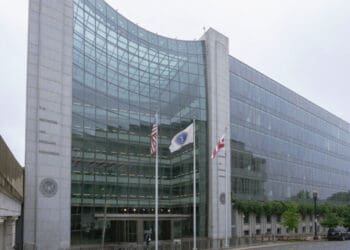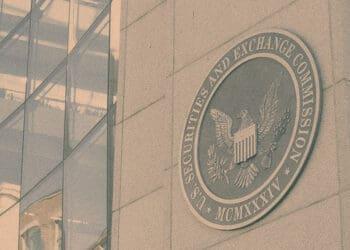In the days and weeks following his death, most tributes to President Jimmy Carter highlighted his humanitarian work after leaving office. That’s understandable, given that he was honored with a Nobel Peace Prize for it, but those who focus entirely on his post-presidential legacy obscure his connection to important milestones in US securities and anti-corruption law. Mark Nelson of Wolters Kluwer digs into Carter’s record in these areas.
Jimmy Carter’s single term in office will be remembered for many things, including trying economic times, an attempt to recover the nation’s moral standing following the Watergate scandal and the prolonged Iranian hostage crisis.
A lesser-known legacy of the 39th president, honored in a state funeral Jan. 9, less than two weeks after his death at age 100, is in securities law, where he signed anti-corruption and capital formation legislation and nominated the first two women commissioners to the SEC.
Presidential authority & the SEC
The modern president by law has few direct authorities over the SEC beyond nominating individuals to be commissioners and designating one individual to be chair. Still, the president can exert some influence over the SEC, an independent federal agency, in limited circumstances.
For example, the president can disapprove a commission order to close trading markets and they can end certain SEC emergency actions. The president can require the SEC to revise, waive or terminate disclosures under the conflict minerals provisions of the Dodd-Frank Act. The president also submits the SEC’s budget request to Congress, is subject to insider trading rules under the Stop Trading on Congressional Knowledge (STOCK) Act and occasionally receives reports on securities-related issues, including notices about companies’ activities regarding Iran, which relate to a long-standing US sanctions regime, and topics under the Sarbanes-Oxley Act (SOX), a law that addressed corporate accounting scandals in the early 2000s.
Moreover, the president can take certain actions under the FCPA, the most significant securities law enacted during the Carter Administration. Under the FCPA’s accounting provisions, which require the maintenance of books and records and the creation of corporate internal controls, the president can allow agency heads, and individuals acting in cooperation with them, to take certain actions. The exercise of presidential authority under the FCPA (and under the conflict minerals rules noted above) must be done in the interest of US national security. The president also has a role in defining who, under the FCPA’s bribery provisions, is a “public international organization,” a component of “foreign official,” one of the FCPA’s most important definitions.
Otherwise, presidents typically remain somewhat detached from the SEC and instead focus on their signature economic powers: setting the nation’s fiscal policy and signing finance-related legislation into law. This latter power includes the ability to veto legislation, an action that only occasionally arises in the securities law context, as it did in the mid-1990s when Congress enacted into law the Private Securities Litigation Reform Act over President Bill Clinton’s veto.
The Carter Administration marked the beginning of the deregulatory era in American government and perhaps that, along with other considerations, influenced Carter’s approach to the SEC. According to a timeline compiled by the SEC Historical Society, Carter was distracted by other economic issues and opted to take an overall “hands-off” approach to the SEC, an agency that he considered to be nonpartisan. Contrast that approach to the present-day SEC whose commissioners, with some exceptions, often are drawn from a largely partisan pipeline of Congressional staffers.
Still, anti-corruption legislation, along with capital formation initiatives, remain the mainstays of the modern presidency and of Congress in the securities law space:
- Gerald Ford signed into law the legislation that created a national market system, a goal that would be implemented under the Carter Administration with a boost from one ground-breaking SEC nomination made by Carter.
- George W. Bush signed the Sarbanes-Oxley Act into law.
- Bill Clinton signed into law the National Securities Markets Improvement Act, which addressed rules for broker-dealers and investment advisers while also splitting oversight of securities regulations between federal and state authorities, thus adding significantly to Securities Act Section 18, one of the most frequently revised federal securities laws.
- Barack Obama signed into law the Jumpstart Our Business Startups (JOBS) Act just two years after signing into law the massive Dodd-Frank Act, his administration’s signature response to the Great Recession of 2008.
Carter’s securities-related legislative agenda thus followed a trend in the making before he took office, and which later presidents have continued to pursue long after his time in the White House.
Compliance Lessons From Boston Consulting Group’s FCPA Declination
Self-disclosure, voluntary program improvements cited as factors in DOJ decision
Read moreDetailsJimmy Carter, corruption fighter
Early in his presidency, Carter signed into law the FCPA. The bill ensured that business-related bribery could be punished via civil and criminal liability, thus rejecting his predecessor’s preferred disclosure-based approach.
“I share Congress[‘s] belief that bribery is ethically repugnant and competitively unnecessary,” said Carter in a presidential signing statement. “Corrupt practices between corporations and public officials overseas undermine the integrity and stability of governments and harm our relations with other countries. Recent revelations of widespread overseas bribery have eroded public confidence in our basic institutions.”
Carter, however, ended that statement on a cautionary note. According to Carter, the FCPA would never reach its full potential unless other countries took similar measures to fight corruption.
Today, the FCPA’s accounting provisions often see more enforcement activity than its bribery provisions and some critics have noted a dearth of FCPA cases at times. But even if there are lulls in the bringing of major FCPA cases, there are almost always cases in the enforcement pipeline at both the SEC and DOJ, and both Republican and Democratic administrations continue to bring FCPA cases.
The 1970s and capital formation
The FCPA was the signature securities bill enacted into law during Carter’s presidency, although several other legislative efforts are notable. Carter signed into law several sets of amendments to the governing law of the Securities Investor Protection Corporation regarding the structure of its board and the amount of protection available to the customers of broker-dealers (1978 and 1980).
Carter also signed into law a bill that amended the Investment Company Act to spur more investment in small businesses, one of several pieces of legislation he signed into law to address this issue from multiple angles. “This legislation will provide a new statutory framework to streamline legal structures and encourage venture capital to invest in small businesses,” Carter said of the securities bill via a signing statement.
Diversifying the SEC
Finally, Carter made a conscious decision to increase the number of women and people of color he nominated to fill key roles in the federal government, including the courts and regulatory agencies. The SEC was the beneficiary of this effort twice during the Carter Administration.
Carter nominated Roberta Karmel to be the first female commissioner at the SEC. Karmel had worked in the SEC’s New York Office between stints at several prominent law firms. However, when the SEC seat opened that Karmel would fill, Carter sought to nominate someone with significant Wall Street experience to aid the commission’s implementation of the 1975 national market system legislation. Karmel was that person.
In a 2005 oral history recorded by the SEC Historical Society, Karmel, who died in March 2024 at the age of 86, noted how her first job with the SEC was really her backup plan because she was unable to get a job on Wall Street despite stellar educational credentials, although she would recall that working for the SEC was the “best decision” for her legal career.
Electoral politics would come into play for Carter’s nomination of the second woman to be an SEC commissioner. Barbara Thomas Judge was nominated by Carter at the end of his term in office, which meant senators were less than enthusiastic to confirm.
“Well, it was very difficult, because it was the very end of the Carter administration, and basically the Reaganites — the Republicans — didn’t want to confirm any more Carter nominees,” said Thomas Judge in the SEC’s oral history. “The people at the SEC told me, basically, I really should forget it: that I wasn’t going to get confirmed. But I was so thrilled with the idea, I just thought: ‘I can’t give this up without a fight.’”
Thomas Judge described how she insisted on meeting Republican members of the Senate banking committee and that she delivered the message to them that she was a self-described “conservative Democrat,” who was “not political” but “was very academic.” She was confirmed.
Bipartisan tributes to Carter were numerous in the days after his passing. Most tributes, however, emphasized Carter the man rather than Carter the president who had signed into law significant securities law reforms and who had diversified the SEC.
The true test of how any modern president exerts power over the SEC traditionally focuses on their nomination of commissioners and the selection of a chair, who will pursue an administration’s broad financial markets policy goals, even if there is a tension between what the administration currently in office wants, what Congress wants, and what the SEC’s independent expertise suggests is needed.
Carter’s “hands-off” relationship with the SEC followed a path that would be trod by others after he left office but which occasionally has been tested.




 Mark S. Nelson
Mark S. Nelson







